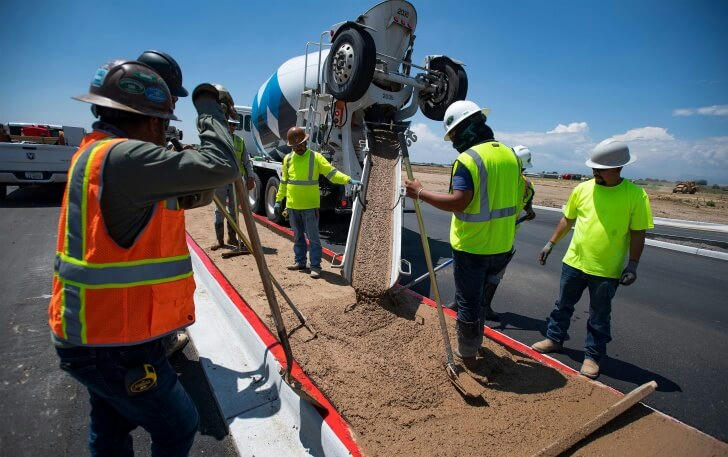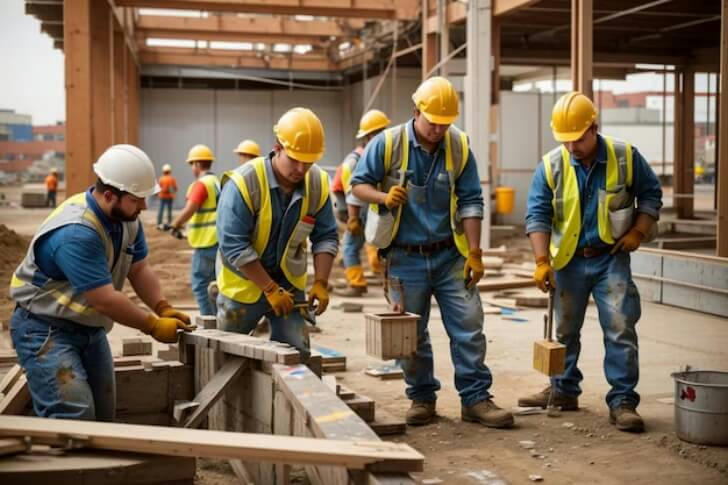Exploring Career Prospects and Recruitment Advantages for Construction Workers
Construction workers are the backbone of our communities, whether they’re building towering skyscrapers in busy cities or peaceful bridges in quiet countryside. With increased investment in U.S. infrastructure planned in the coming years, there’s never been a better time to consider a career in this thriving industry.

1. What Do Construction Workers Do?
Construction workers are crucial to every step of a building project, from breaking ground to putting on the final touches. They can focus on specific skills like carpentry, steelwork, or masonry, which helps them become experts in their crafts. With hard work and learning, they can move up the ladder to roles like foreman or project manager. This shows there's plenty of room to grow in the construction field.
2. Why Choose a Career in Construction?
Working in construction isn’t just about having a steady job—it’s also about earning a good income. Research shows that wages for construction workers are on the rise, and many companies offer good benefits like health insurance and retirement plans. The job also tends to be stable, shielding workers from economic ups and downs, which is a big plus for anyone wanting job security.
3. What’s the Job Market Like?
Right now, there’s a big demand for skilled construction workers in the U.S. Because of large projects and infrastructure upgrades happening everywhere, more workers are needed in both big cities and small towns. Employers are eagerly looking for those with hands-on experience and the right certifications. This demand suggests not only immediate job openings but also long-term security, as there are many projects lined up nationwide.
4. How to Land a Job in Construction

Getting the right skills and certifications is essential if you want to work in construction. A strong resume that highlights your relevant experience can make a difference. It's also important to practice your interview skills and use platforms like LinkedIn to connect with others in the industry. In interviews, talking up your experience and ability to work well with others can really boost your chances of getting hired.
5. Future Careers for Construction Workers
Today, new technologies like eco-friendly building techniques and 3D printing are making construction even more exciting. These innovations improve efficiency and offer more ways to learn and grow in your job. Plus, continued government spending on infrastructure means more growth in the industry. This presents great opportunities for those ready to embrace change and learn new skills.
6. Inspiring Success Stories
Take the story of Emily Chen, who started as a general laborer on small projects. With determination and learning about sustainable building, she moved up to become a site manager for major projects like the Salesforce Tower in San Francisco. Emily’s journey shows how hard work and skill development can help you move up in the industry.
Similarly, Alex Martinez began with masonry work on historic buildings. His knack for innovative techniques earned him a lead role in the renovation of the U.S. Capitol dome. His experience highlights how specializing and building a reputation in high-profile projects can boost your career in construction.
These real-life stories reflect how varied the paths can be in construction and can inspire newcomers with what’s possible.

7. Conclusion
Construction workers are vital not just to building our cities but also to securing the future of America’s infrastructure. If you’ve been thinking about entering this vibrant field, now is the time. By joining large-scale projects, you can achieve personal career goals and be part of history in the making. So take action now and start an exciting new chapter in your career.
Appendix
In recent years, the employment landscape for construction workers in the United States has been both positive and challenging. With economic recovery and the acceleration of urbanization, there is a rising demand for infrastructure development and new building projects, particularly in major cities and fast-growing areas. This translates into more employment opportunities and relatively high wages for construction workers. The increasing market demand is primarily driven by commercial construction, residential development, and infrastructure projects, such as road repairs and public space renovations.
However, the industry faces several challenges. A significant issue is the growing labor shortage. Given the perception that construction work involves long hours and high physical demands, many young job seekers opt out of this career path. Furthermore, the impact of the pandemic has resulted in some workforce displacement and project delays, exacerbating labor scarcity.
To address these challenges, construction companies and the government have been proactive. Companies are attracting and retaining workers by offering higher wages, improving working conditions, and providing increased opportunities for training and skill development. On the government side, legislation is pushing for modernization and safety standards within the construction industry, alongside advancing vocational education programs to cultivate a more skilled workforce.
Overall, despite the challenges posed by labor shortages, the employment outlook for construction workers in the U.S. remains optimistic. Particularly for experienced and highly skilled workers, this profession holds significant potential for growth and development.
If you’re eager to get started, check out job search sites and vocational training programs. They’re a great way to kickstart your career and help you quickly advance in this important industry.
This article aims to spark interest in construction careers and encourage motivated individuals to take part, enjoying the sense of achievement and job satisfaction that comes with building the critical infrastructure of tomorrow.
